Very easy to make. Any line drawn with the rulers conforms to 2-point perspective.

This is a useful drawing board that can be made from cardboard & strips of scrap wood with a small amount of PVA
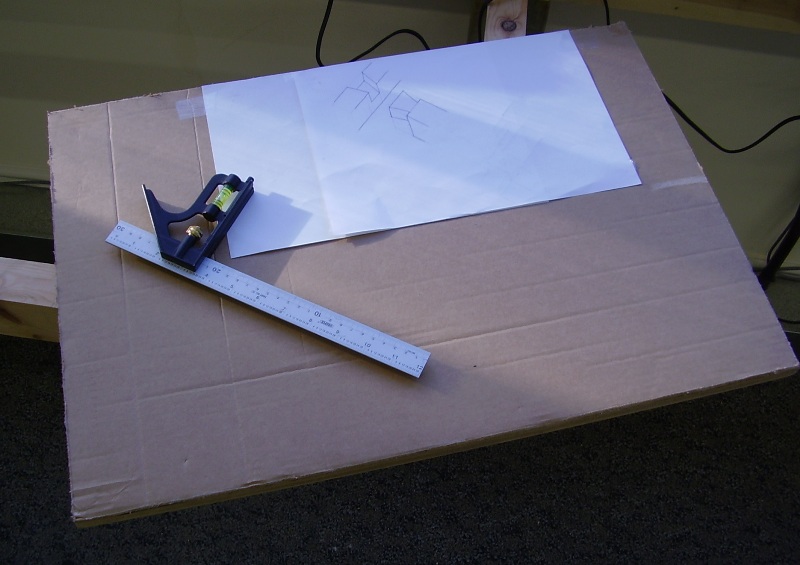
This shows the reinforcement at the back
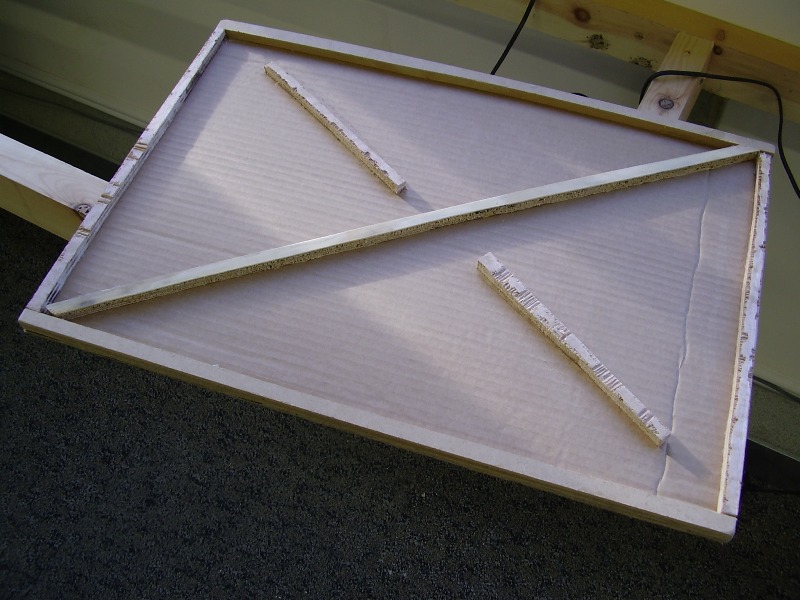
Make this from strips of card. It copies images: the worse you make it, the more it stretches and distorts the original. Follow the original image with the pointer, the pen produces the copy. If for one reason or another you feel you are unable to saw a felt-tip in half then remove the ink-tube and tip from the plastic body. Or just use the pen as is.
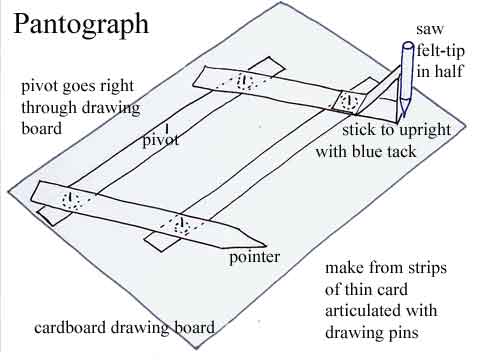
Here we see one copying one side of the rabbit's face: original is green, copy is blue.
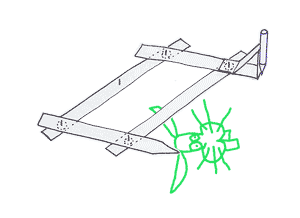
This is an attachment for a pantograph
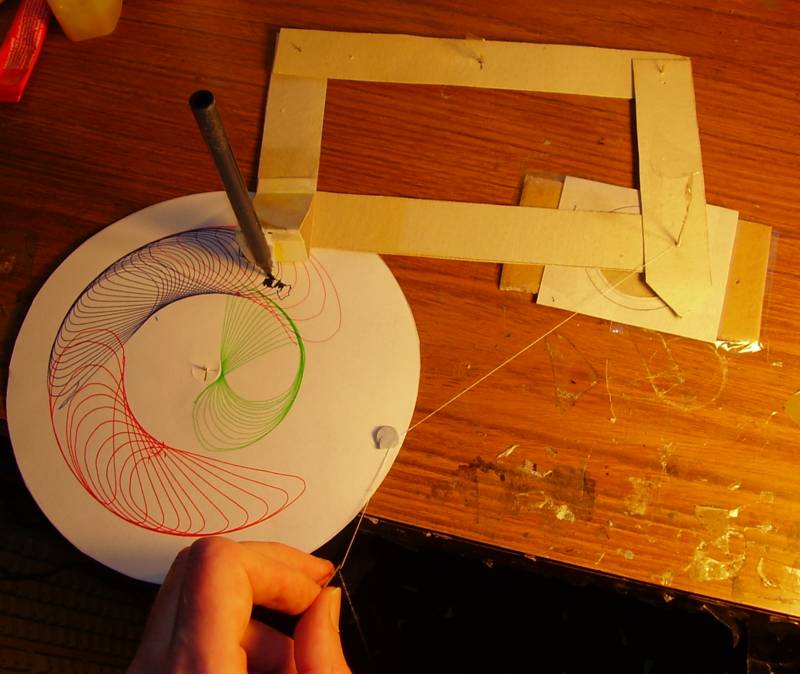
it constrains one side to move in a circle whilst at the same time winding in a bit of cotton.
It is rather a laborious design, this is a much simpler way of doing the same thing
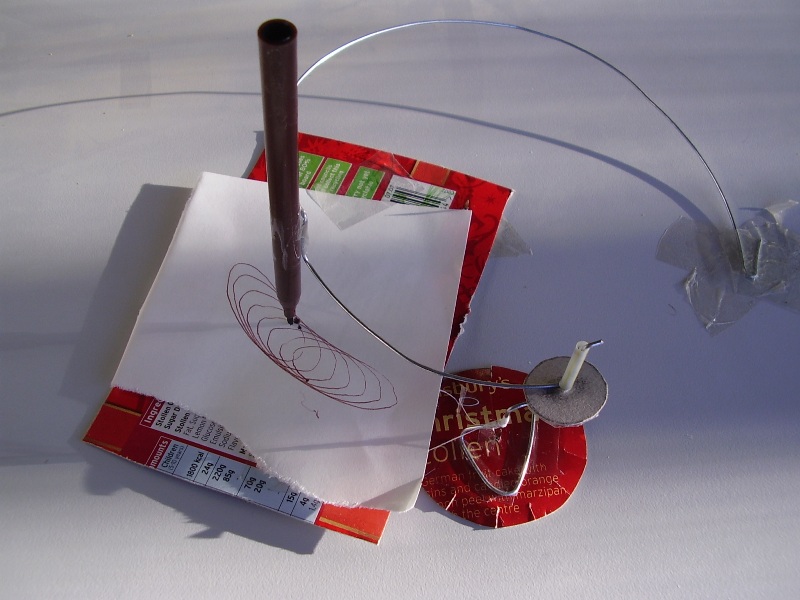
The cotton pulls the paper round when the handle is turned. The card holding the paper has a drawing pin through it in the top-right-hand corner, the drawing pin is taped to the table
The winder also bears on a drawing pin taped to the table
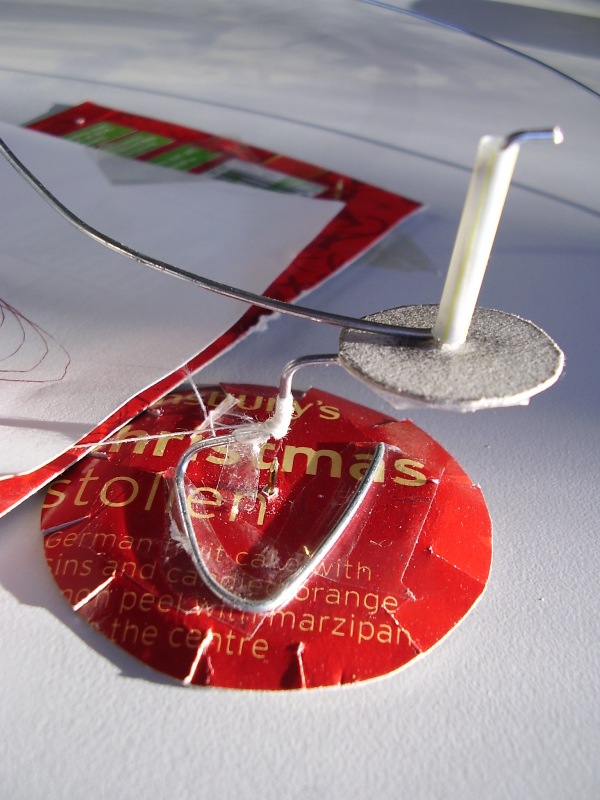
The simplified pantograph consists just of a loop of garden wire taped to the table at one end and holding a pen at an intermediate point
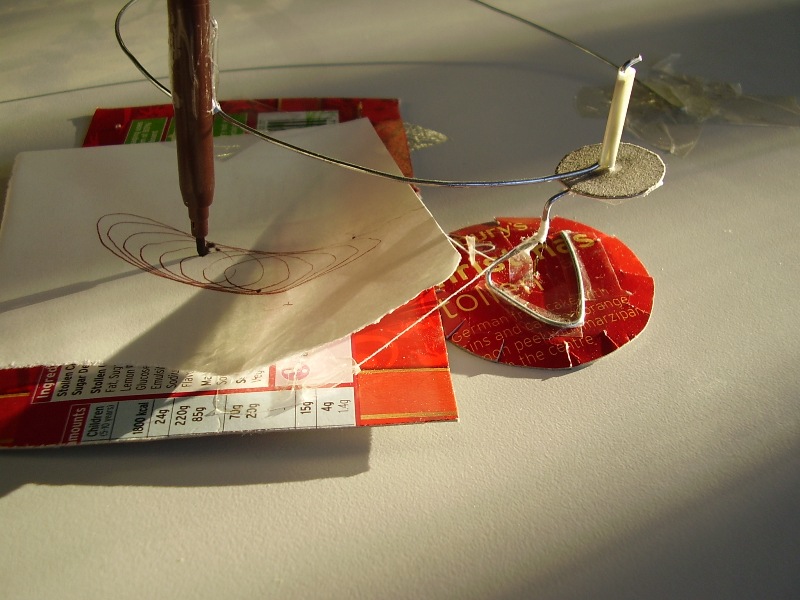
This is a detail of the attachment of the cotton to the card & the winder
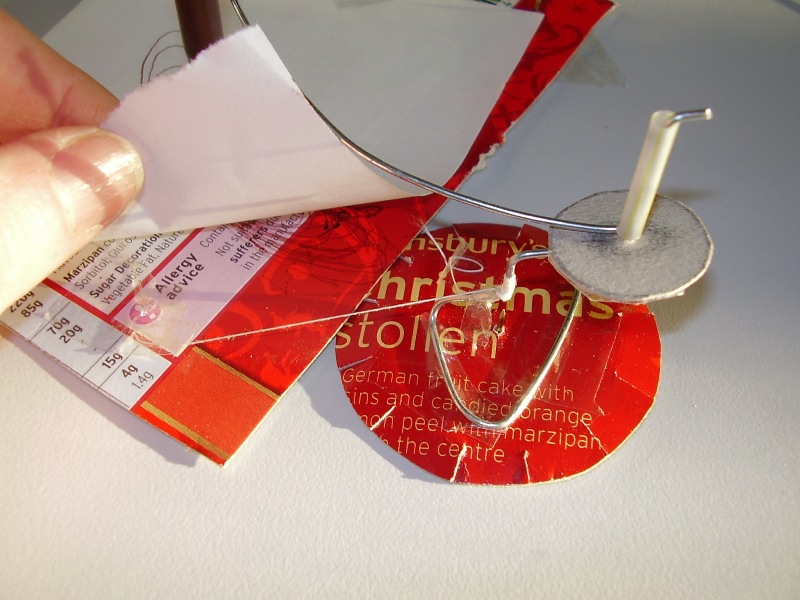
Movie
This is a better design
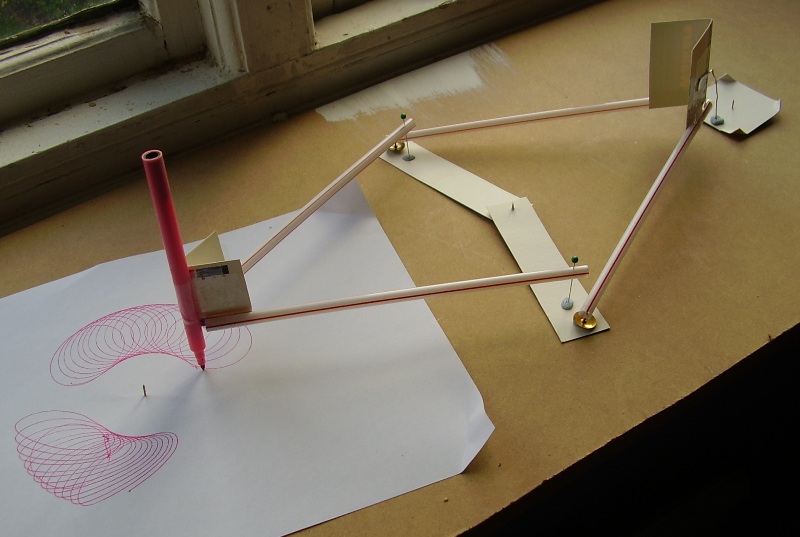
Rotate the right-hand wheel with your right hand, the paper with your left, but only when the movement won't show on the pattern i.e. when the line is tangential
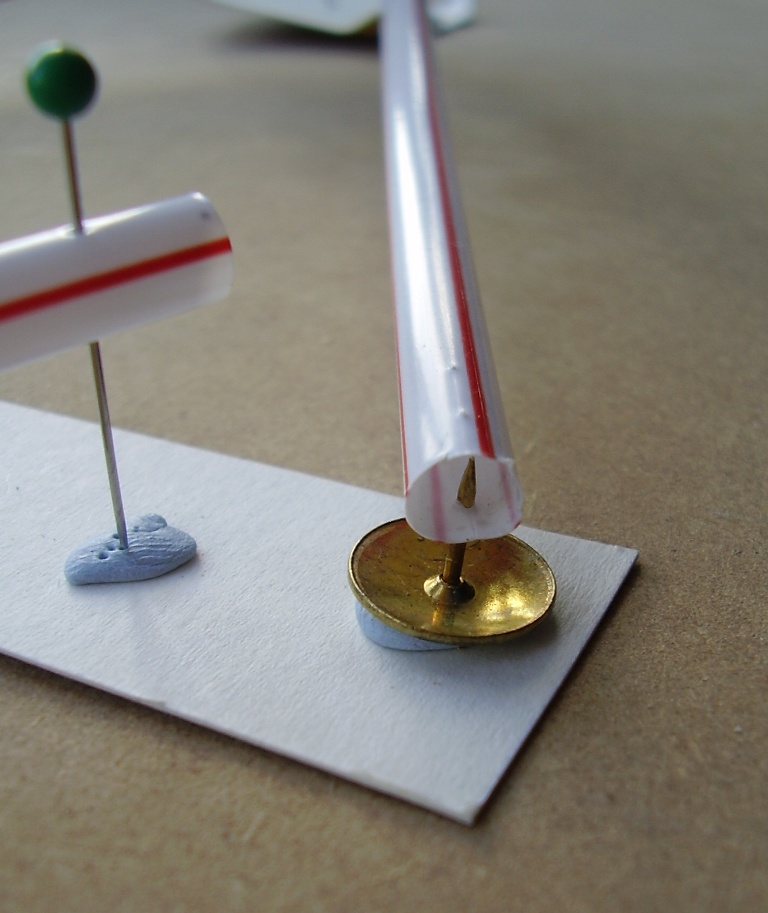
This is a detail of the end of one of the pivot arms. You can change the pattern by moving the blob of blue-tack along one of the pivot arms. The central pin that holds the two pivot arms together is stuck to the table with blue-tack.
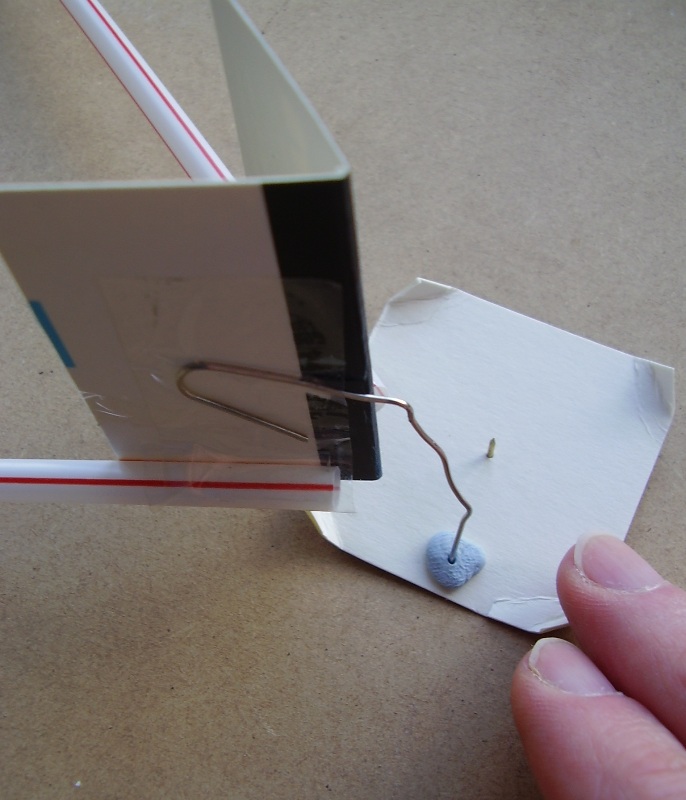
This is a detail of the right-hand wheel. You could trace the wire pointer round a stencil instead or just use it as a normal pantograph. The centre of the wheel is stuck to the table, it is dog-eared to make it easier to turn.
If you unstick the central pivot pin from the table and stop rotating the paper but turn the right-hand wheel the whole thing rotates slowly about the right-hand pivot. I'm not sure why.
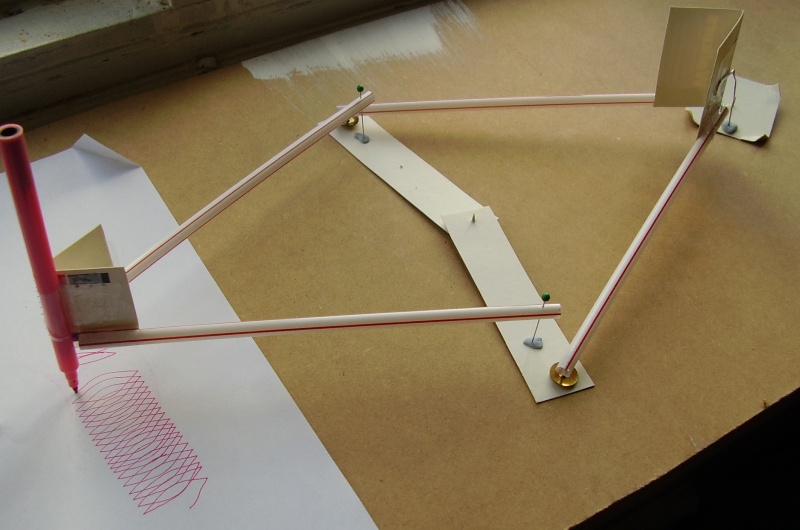
coke-can planimeter
wobbling pen
Use these to make banknotes. Stimulates an interest in large numbers.
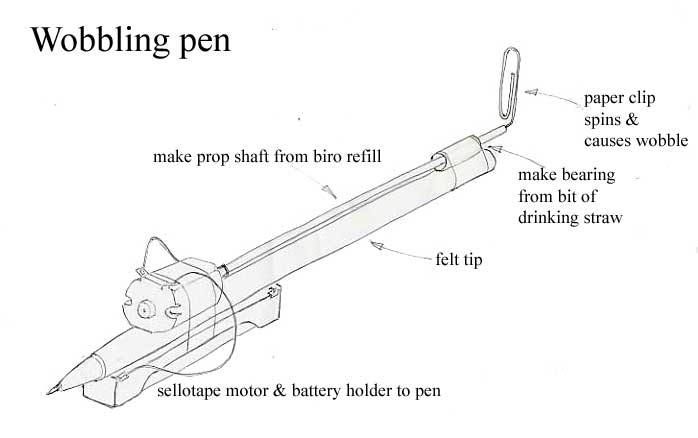
spinning pen
Similar thing but a bit more complex. Does much bigger circles.
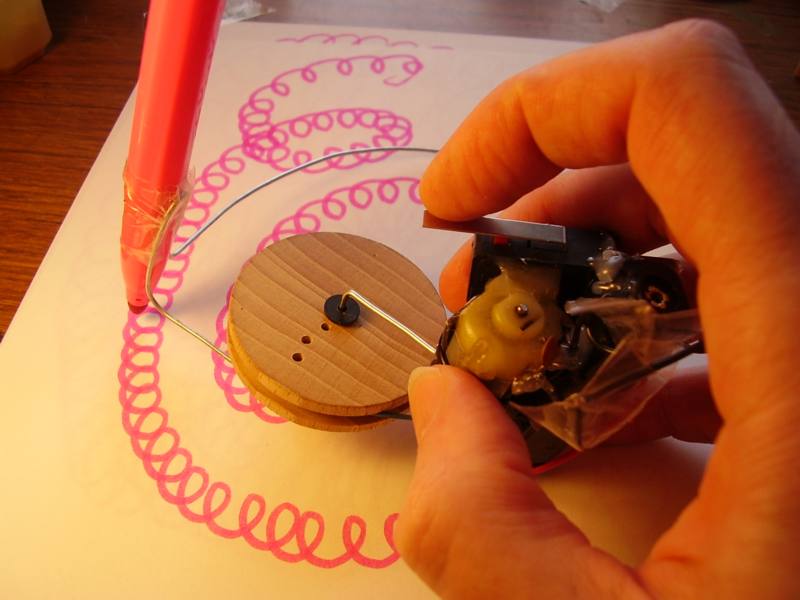
The bent wire constrains the pen to follow the rotation of the wheel
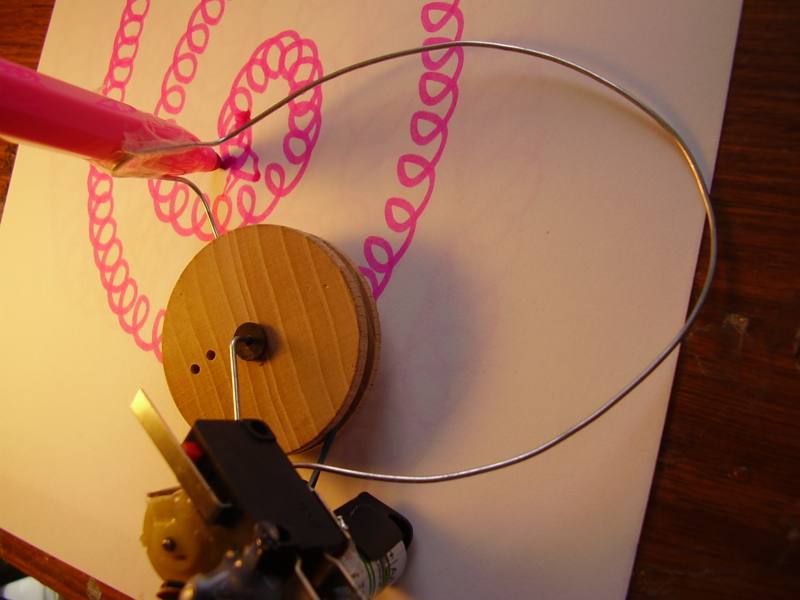
The end of the bent wire can be stuck into the wheel at a number of points giving different size circles
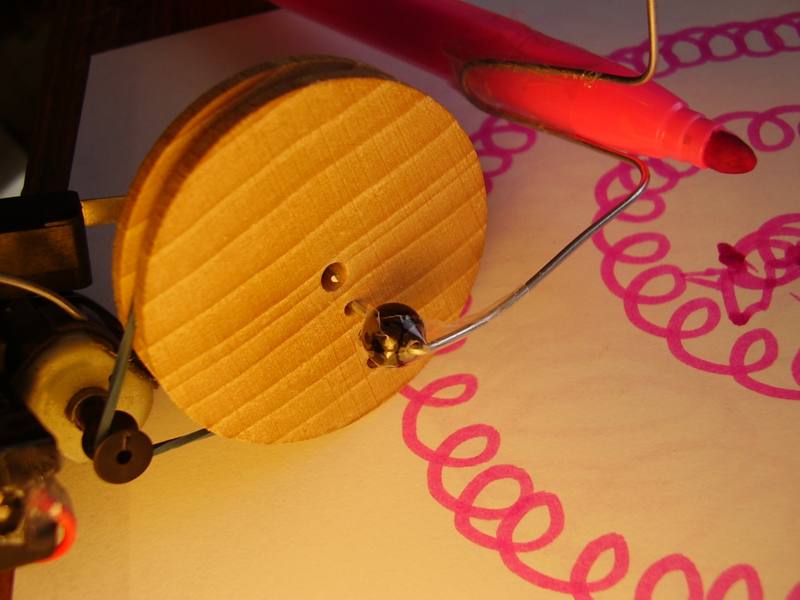
The bend of the wire is quite critical. Less critical if you use more than one battery but then less tactile.
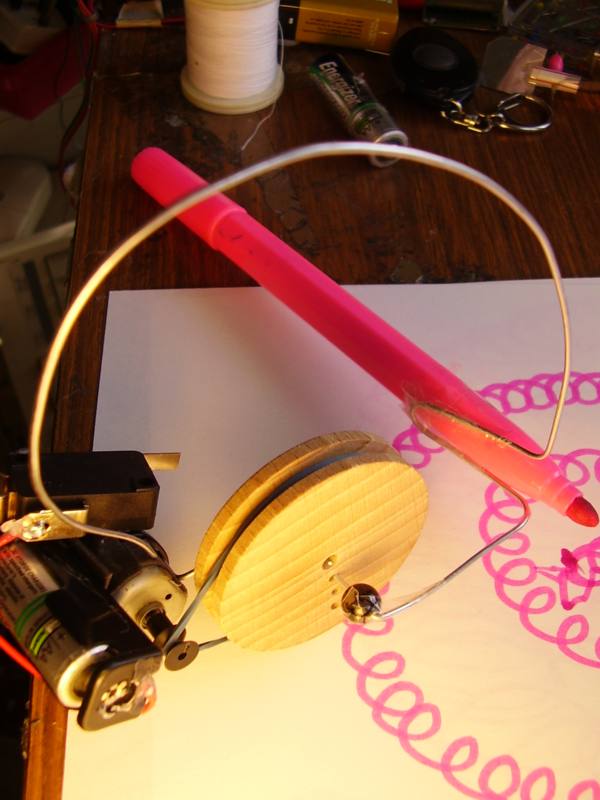
Just one piece of bent wire. One end in center of wheel; about one inch then a bend to stick the motor to; a long loop then another bend to stick the pen to; about two inches then a small bend at the end to locate in one of the eccentric holes in the wheel.
link to movie
ink centrifuge
These patterns can be made with a felt tip if you're careful not to make a mess.
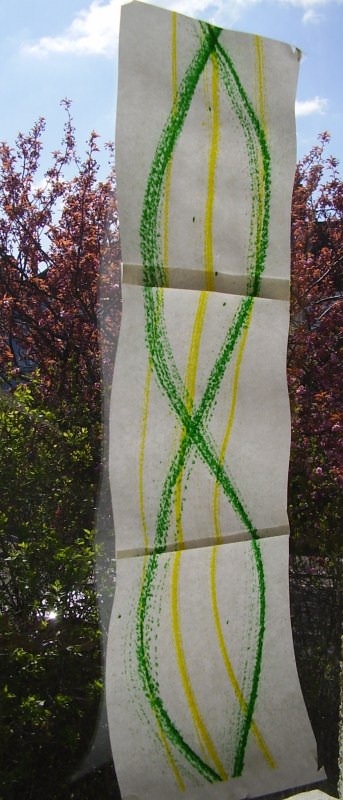
Stick three sheets of paper together to form a cylinder, then spin a felt tip round an an axis sideways through its middle. This one is being done with an electric motor
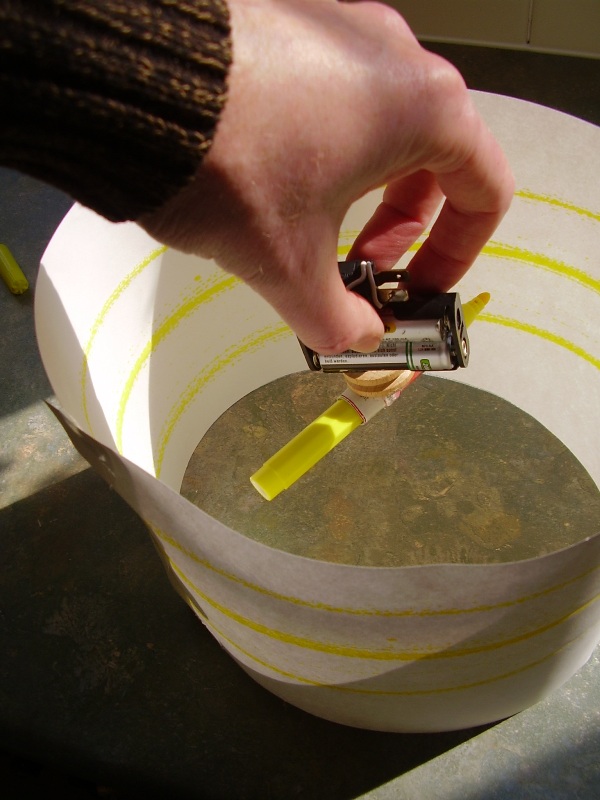
If you angle the plane of rotation slightly you end up with the wavy lines. You can make a thing for doing it by pulling a string, you don't have to spin the pen very fast. Link to movie
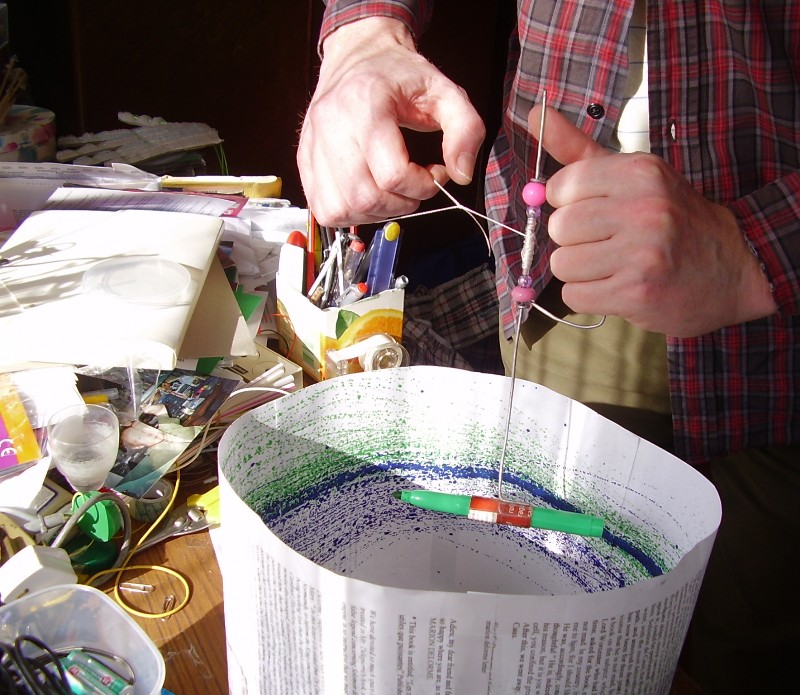
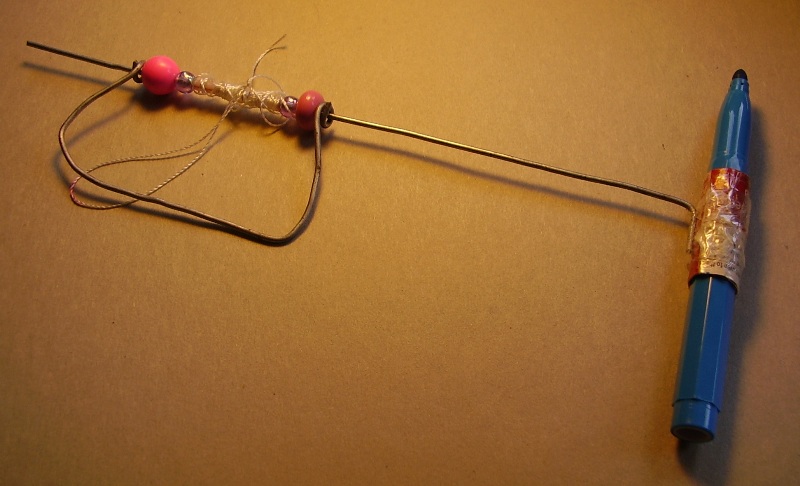
You can even do it by spinning some kind of axle between the palms of your hands; here the axle is a thinner felt-tip
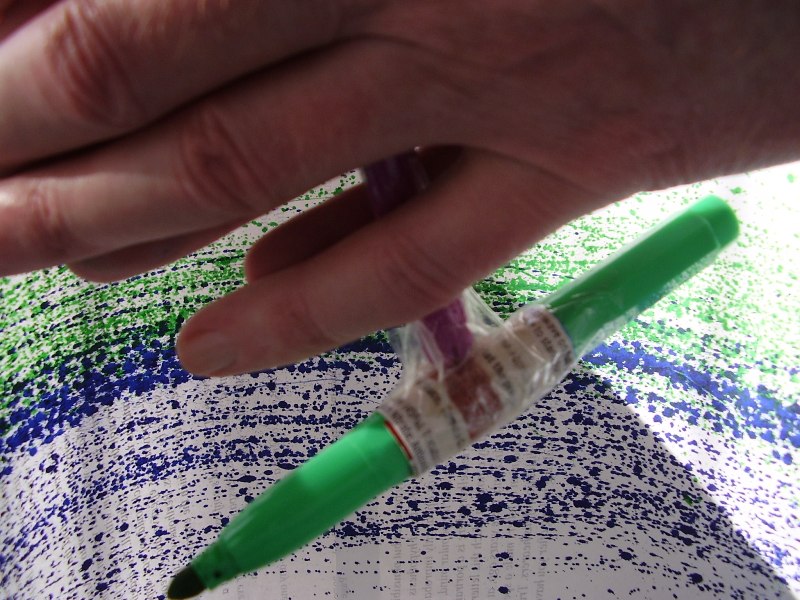
Although you really need something thinner like a kebab stick or you can't spin it fast enough.
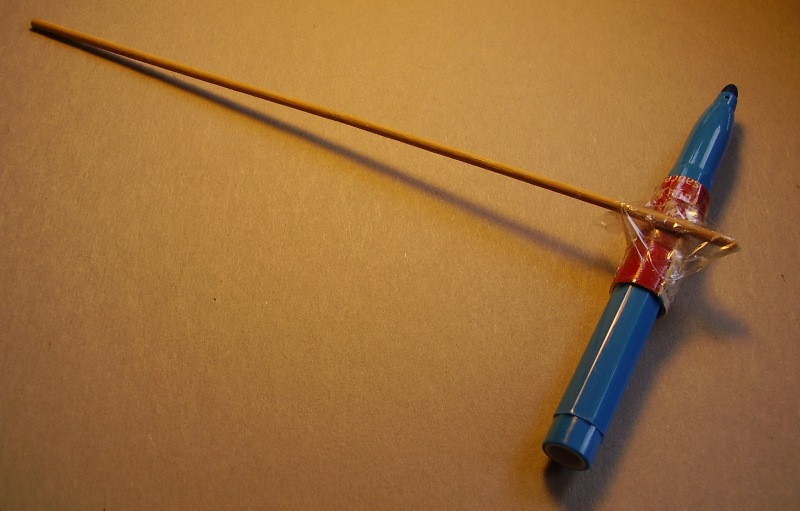
Press that button at your peril......
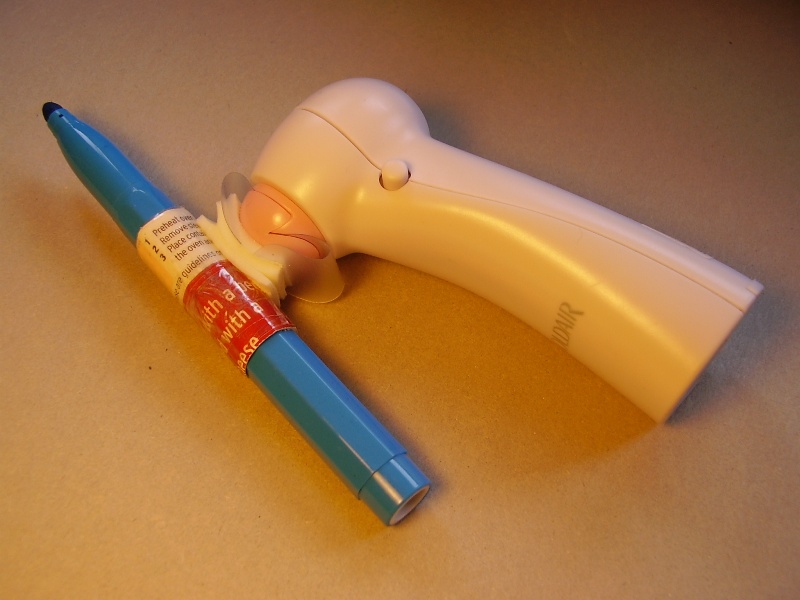
motorising a 4-colour pencil
This is a motorised 4-colour pencil; make a plastic tube by cutting up a felt-tip lid or out of cardboard, it must be quite a good loose fit. The pencil will require frequent sharpening so it must be easy to dismantle.
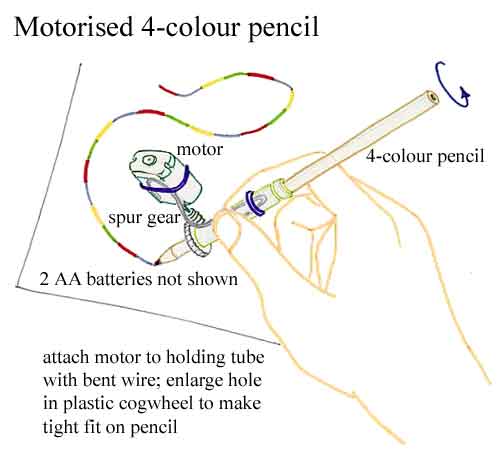
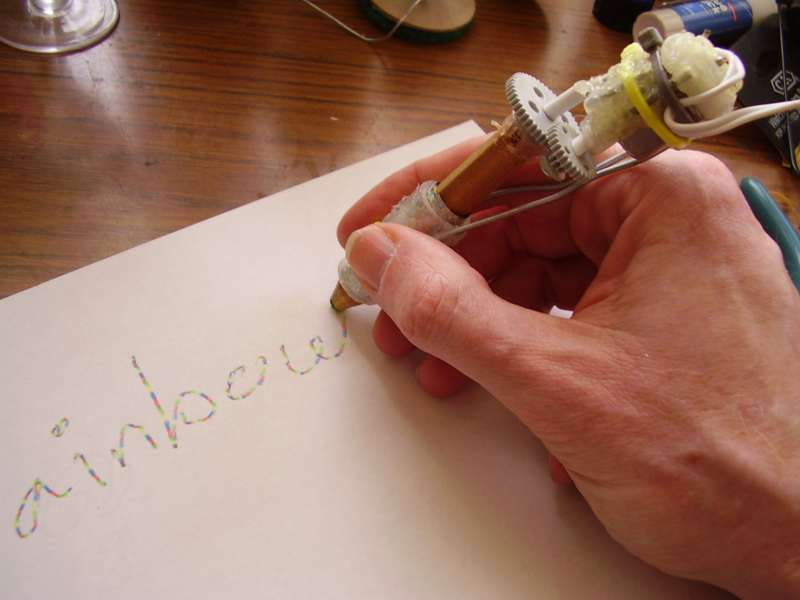
Spirographs can be made from cheap plastic gearwheels just by making a radial cut with a pair of scissors to 'add' a gear tooth
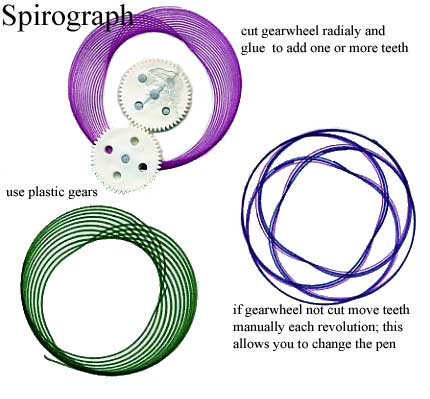
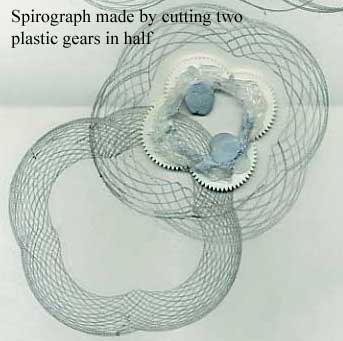
YouTube movie of very ambitious one
This can be done with a drawing pin, a short length of cotton and tiny amount of blue tack

You need a cardboard drawing board to stick the drawing pin through and you have to make a cardboard washer, it works surprisingly well. Works well with a biro because of the profile of the tip.
Very simple, works quite well. Can be adapted as water-drop microscope.
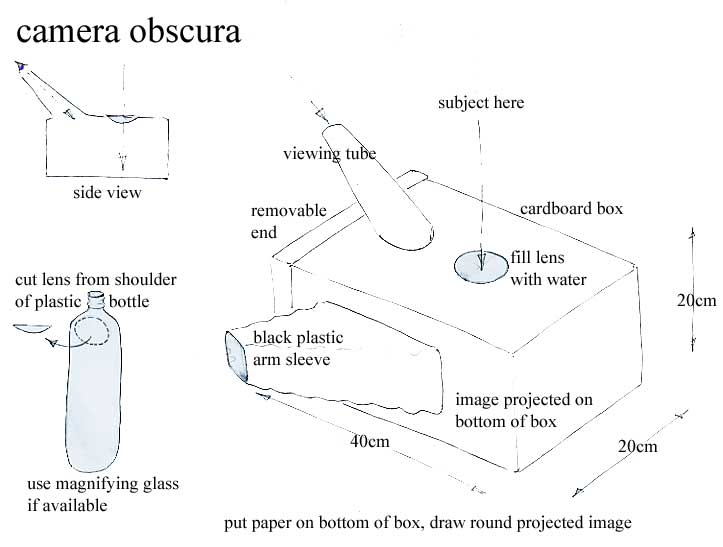
The sheet of paper must be rigidly mounted on the bottom of the box. The subject must be very well lit.
Interesting camera obscura link
my email is davidvwilliamson@hotmail.com
back to main site































